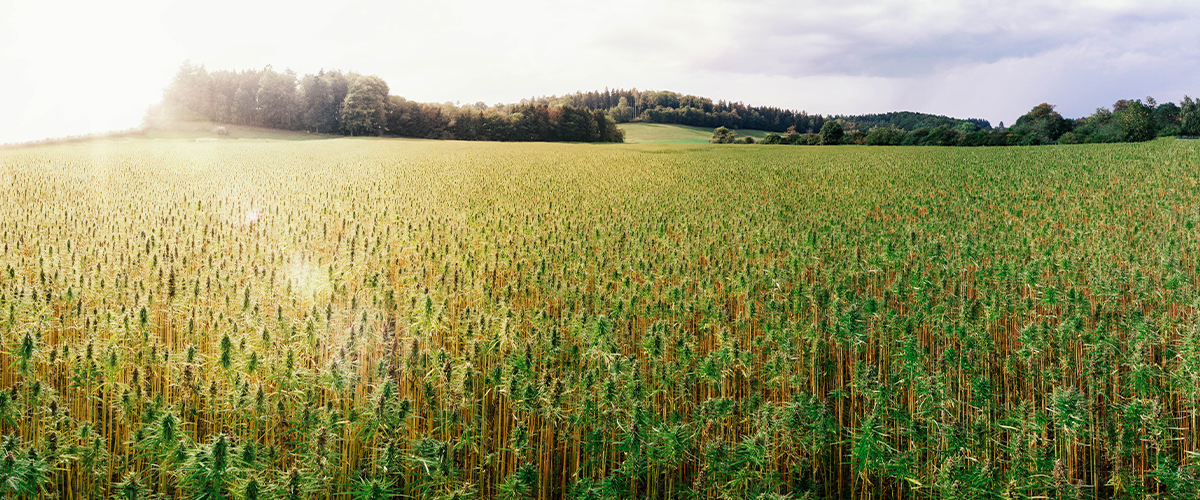A federal insurance pilot program option is now available for certain hemp farmers growing the plant for fiber, grain, or CBD oil for the 2020 season.
Hemp farmers in certain states can now apply for federal crop protection under a new United States Department of Agriculture (USDA) insurance pilot program.
The USDA’s Risk Management Agency announced on Dec. 23 that the new crop insurance option will provide Actual Production History coverage under 508(h) Multi-Peril Crop Insurance (MPCI) for eligible hemp farmers.
The MPCI coverage is for hemp grown for fiber, grain or CBD oil for the 2020 crop year. The MCPI pilot program is in addition to the Whole-Farm Revenue Protection coverage made available to hemp growers by the USDA earlier this year.
“We are excited to offer coverage to certain hemp producers in this pilot program,” said RMA Administrator Martin Barbre in a press release. “Since this is a pilot program, we look forward to feedback from producers on the program in the coming crop year.”
According to the Insurance Information Institute, more than 90 percent of farmers who purchase crop insurance chose MPCI. That’s because the insurance covers a wide range of crop losses. Those include lower yields caused by natural events like damaging weather, disease, drought, fire, flooding, and insect damage.
Certain counties in the following 21 states are eligible for the insurance option:
- Alabama
- California
- Colorado
- Illinois
- Indiana
- Kansas
- Kentucky
- Maine
- Michigan
- Minnesota
- Montana
- New Mexico
- New York
- North Carolina
- North Dakota
- Oklahoma
- Oregon
- Pennsylvania
- Tennessee
- Virginia
- Wisconsin
To qualify for the pilot crop protection program, hemp producers must meet certain qualifications including:
- Maintain compliance with applicable state, tribal or federal guidelines for hemp production
- Have at least one year of prior hemp production
- Have acquired a contract for the sale of the insured hemp
Eligible producers must also be licensed under a program approved under the USDA Agricultural Marketing Service or operating as part of a state or university research pilot program.
Only crops not exceeding the federal acceptable limits of 0.3 percent tetrahydrocannabinol (THC) will be covered by the MPCI program.
The Risk Management Agency also announced that in the 2021 crop year, hemp will be insurable under the Nursery crop insurance program and the Nursery Value Select pilot crop insurance program in addition to the MCPI program.
The Return of Hemp
The USDA’s announcement is another step forward for the U.S. hemp industry. In late October, the USDA released the long-awaited interim final rule on hemp regulations. U.S. hemp farmers had been struggling with industry contradictions and a lack of formal regulations since the production of hemp was made legal last year.
The 2018 Farm Bill removed hemp from the list of federally controlled substances and made its production legal for all purposes. The groundbreaking legislation defined hemp as an agricultural commodity and placed it under the regulation of the USDA.
The USDA’s interim hemp regulations are scheduled to expire in two years, leading to the establishment of final rules for the industry. Hemp is a variety of cannabis with less than 0.3 percent of the intoxicating compound THC.
Learn more about hemp’s long history in America.
American farmers were informed this month of 10 pesticides approved for hemp by the Environmental Protection Agency (EPA) for the 2020 season. The Federal Reserve also recently loosened hemp banking regulations.
As federal regulations continue to pave the way for a revival of hemp, market experts are reporting a sharp incline of growth for the cash crop. According to recent estimates from MarketsandMarkets, the U.S. hemp market could reach $26.6 billion by 2025.
Where to Go for Cannabis News
Visit our news page for more reports on the latest cannabis news in policy, business, and scientific research.






